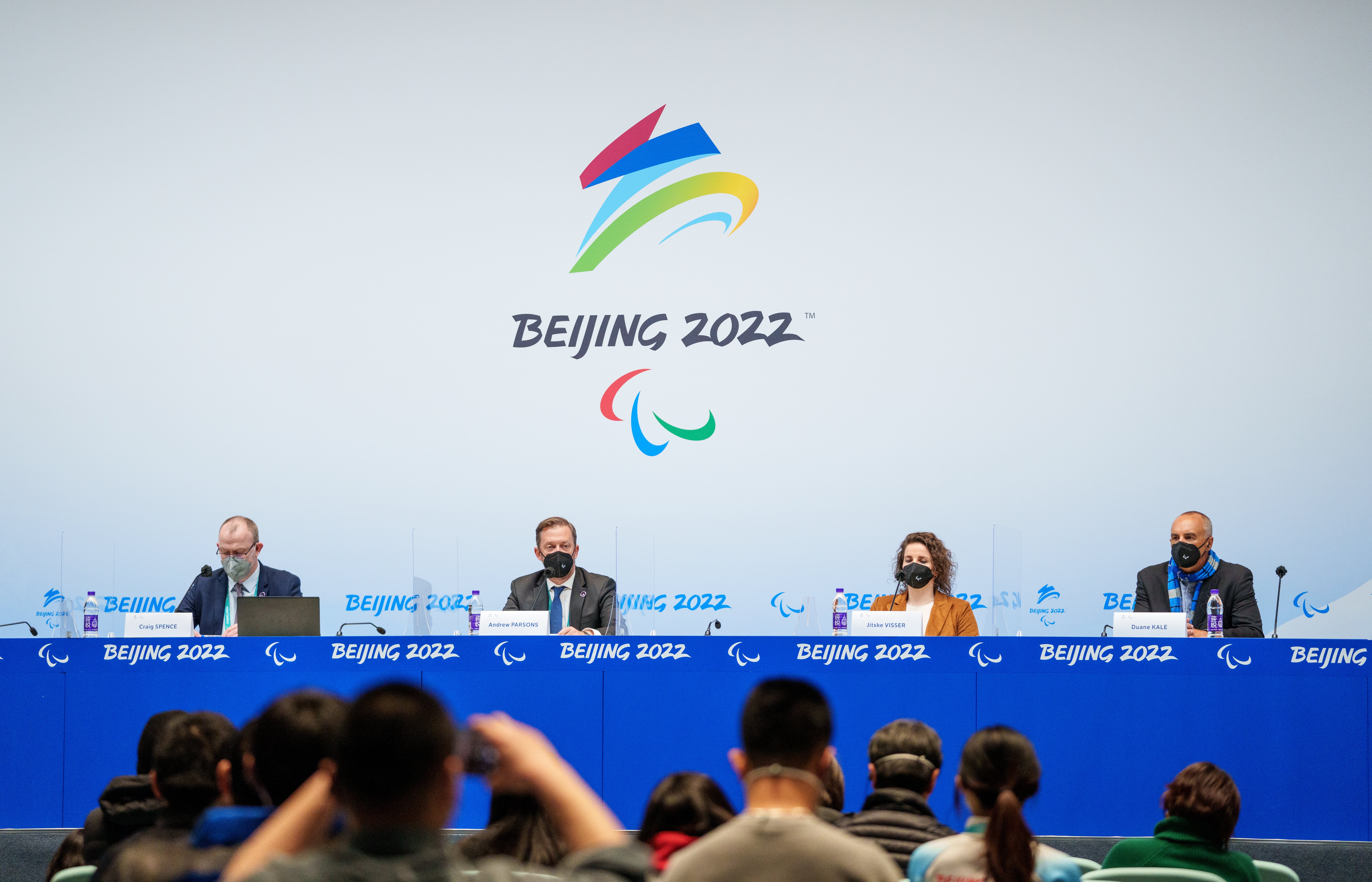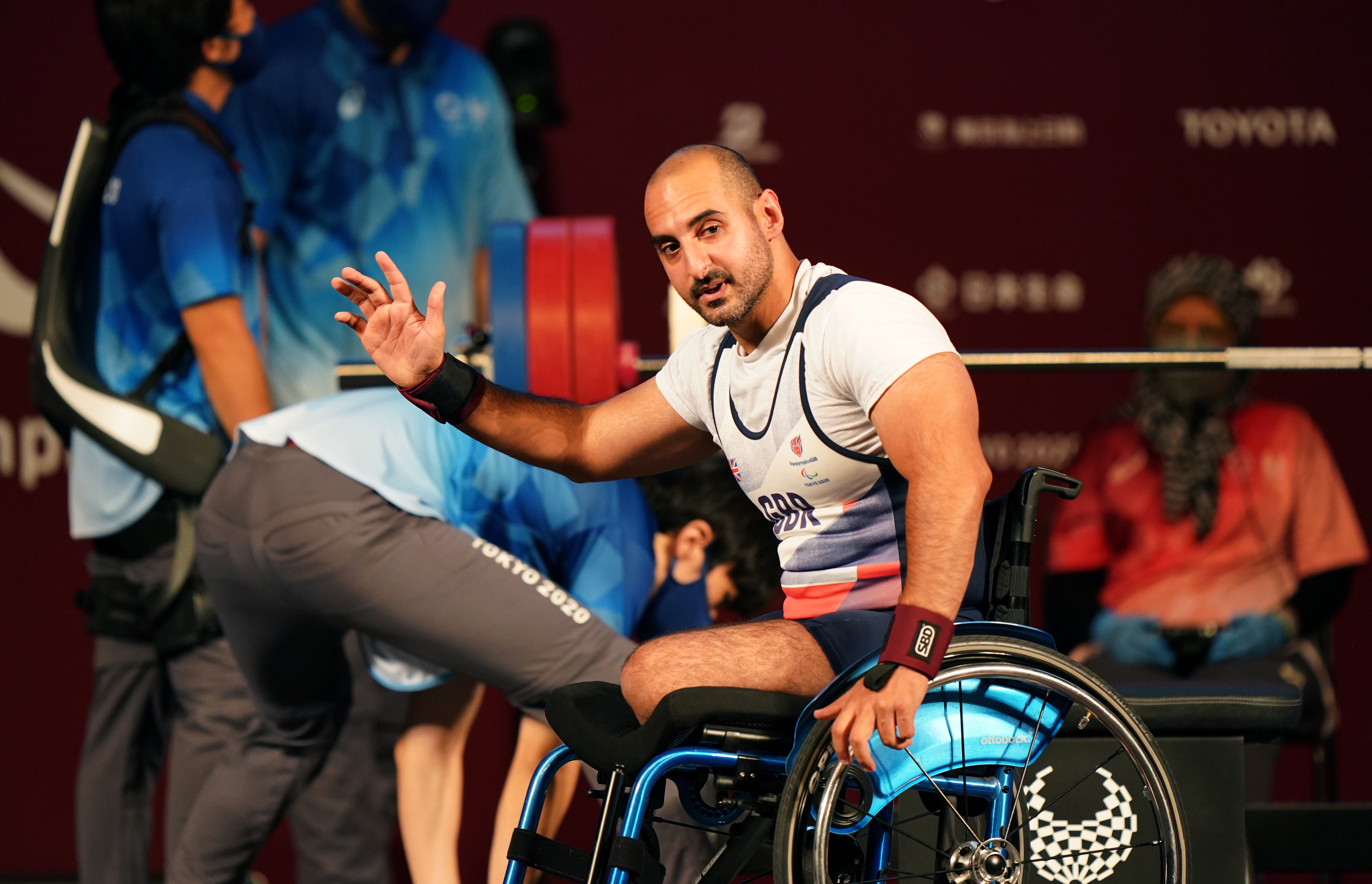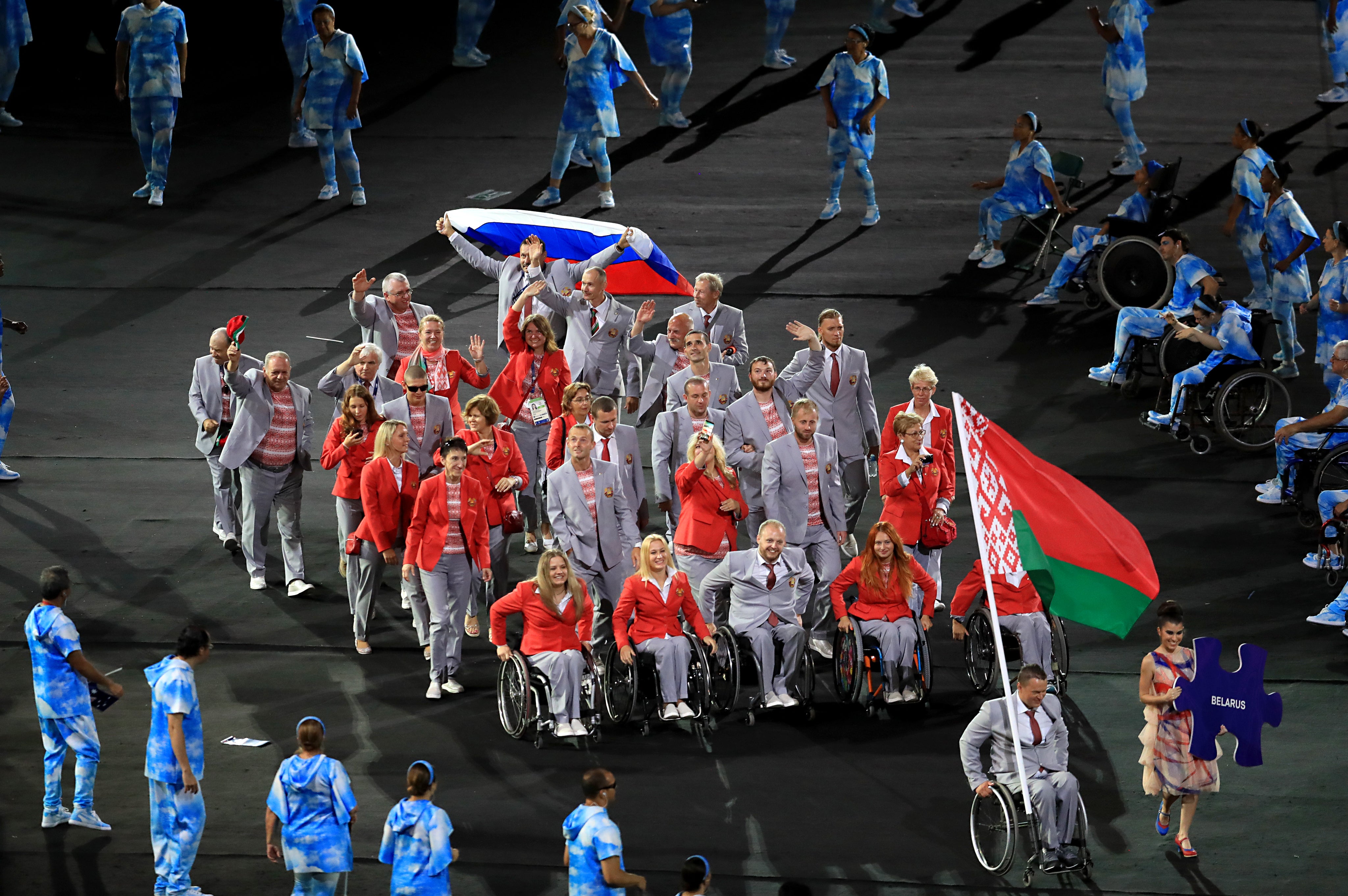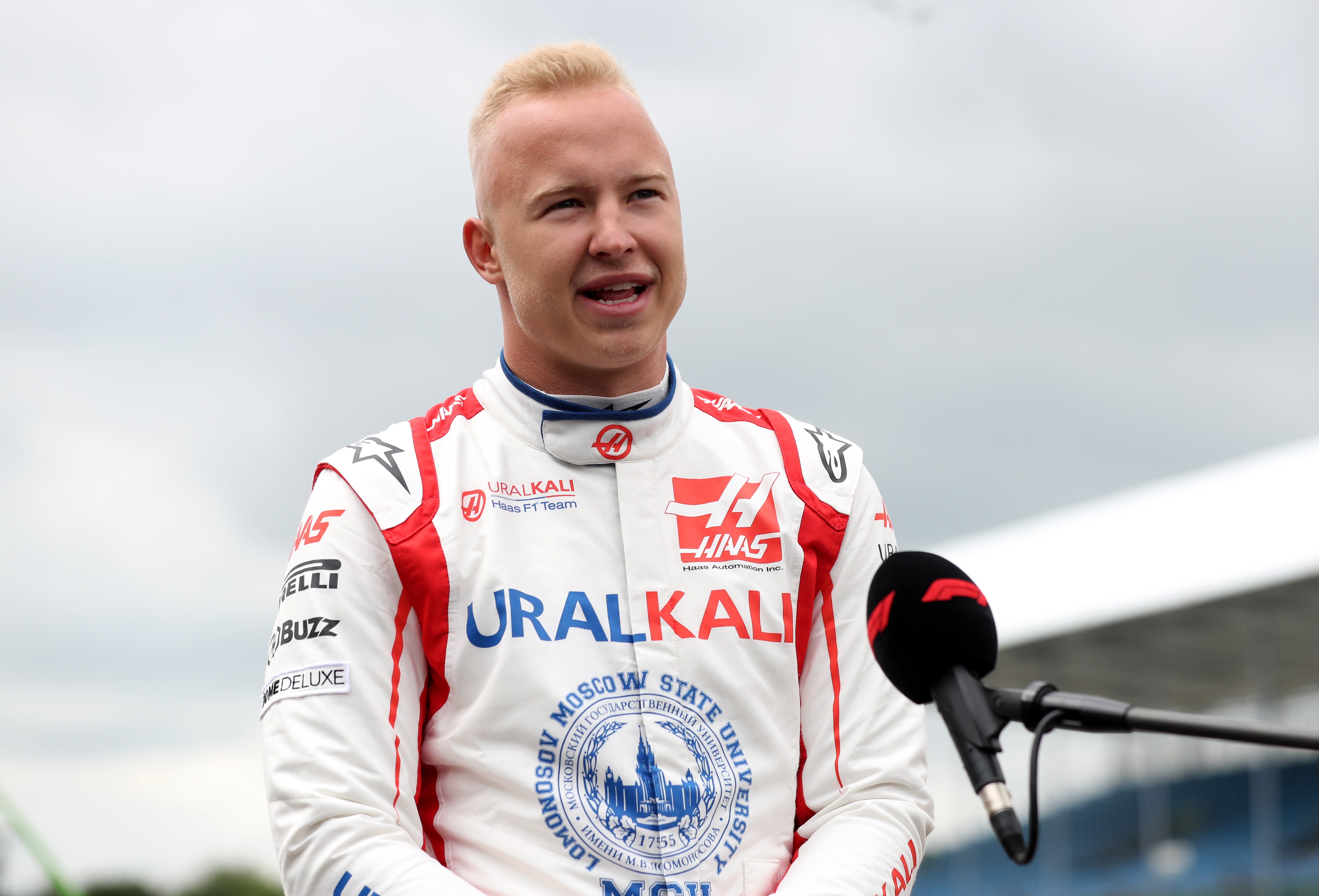IPC’s Winter Games ruling ‘has put athletes in a very difficult spot’
Russians and Belarusians will be allowed to compete in Beijing despite the invasion of Ukraine

Your support helps us to tell the story
From reproductive rights to climate change to Big Tech, The Independent is on the ground when the story is developing. Whether it's investigating the financials of Elon Musk's pro-Trump PAC or producing our latest documentary, 'The A Word', which shines a light on the American women fighting for reproductive rights, we know how important it is to parse out the facts from the messaging.
At such a critical moment in US history, we need reporters on the ground. Your donation allows us to keep sending journalists to speak to both sides of the story.
The Independent is trusted by Americans across the entire political spectrum. And unlike many other quality news outlets, we choose not to lock Americans out of our reporting and analysis with paywalls. We believe quality journalism should be available to everyone, paid for by those who can afford it.
Your support makes all the difference.British Paralympian Ali Jawad expects widespread athlete boycotts over the decision to let Russians and Belarusians compete at the Beijing Winter Games.
The International Paralympic Committee has been strongly criticised for its decision to allow athletes from those two countries to take part as neutrals, despite the Russian invasion of Ukraine which has been aided and abetted by Belarus.
Culture Secretary Nadine Dorries said the British Paralympic team should consider a “full range of options” to protest against it.
The British Paralympic Association released its own statement saying it would “reflect on the implications” of the decision having previously stated that allowing Russian and Belarusian athletes to compete would not be “compatible with the objectives of the Paralympic movement”.
Neither Dorries nor the BPA used the word boycott, but there is the possibility that British athletes or those from other countries may now refuse to compete against Russians or Belarusians.
“If I was an athlete going to the Winter Games I would refuse to compete,” Jawad, a Paralympic weightlifter, told the PA news agency.
“Me competing in sport is not bigger than human life. Unfortunately the IPC has put athletes in a very difficult spot now. Potentially it’s up to athletes to take it into their own hands and that is unfair on them. Because of the decision the IPC made I think there will be a lot of boycotts.”

Dorries said: “I am extremely disappointed in the IPC – this is the wrong decision and I call on them to urgently reconsider. They must join the rest of the world in condemning this barbaric invasion by banning Russian and Belarussian athletes from competing.
“We will consider the full range of options in protest of this decision, in consultation with UK Sport and the British Paralympic Association. I will also be meeting with my international counterparts this week to discuss how we can respond collectively.”
Russian and Belarusian athletes will compete under the Paralympic flag, and their medals will not count towards the overall table.
The IPC said on Wednesday it would hold an extraordinary general assembly this year to vote on whether to make compliance with the Olympic Truce a membership requirement, and whether to suspend or terminate the membership of the Russian Paralympic Committee and Belarus Paralympic Committee.

However, the IPC’s president Andrew Parsons said that, in reaching its decision for the Beijing Games, his organisation had been obliged to follow its rules as they are written now.
He believed any suspension of the Russian and Belarusian athletes from Beijing over breaches of the Olympic Truce would have been overturned in the German legal system where the IPC is based.
He added: “Now that this decision has been made, I expect all participating PCs (Paralympic Committees) to treat the neutral athletes as they would any other athletes at these Games. No matter how difficult this may be.
“Unlike their respective governments, these Paralympic athletes and officials are not aggressors. They are here to compete in a sport event like everybody else.”
The IPC also intends to enforce rules prohibiting political protests on the field of play, on the podium and in medal ceremonies, based on its 18-month consultation with athletes.
Ukrainian athletes reacted with dismay to the IPC decision, and in a joint statement with reform group Global Athlete, said: “As Russian and Belarusian bombs rain down on Ukrainian citizens, the International Paralympic Committee (IPC) today issued another blow to every Ukrainian athlete and citizen by allowing Russian and Belarusian athletes to compete at the 2022 Beijing Paralympic Games.
“Yesterday, 19-year-old Ukrainian biathlete Yevhen Malyshev was killed in combat in Ukraine, defending his country against Russia’s attack. How many more lives need to be lost before sport implements meaningful sanctions?
“With or without a neutral label, the Russian and Belarusian authorities will use their athletes’ participation in these Games as state propaganda. During the Games and upon the athletes’ return home, these authoritarian regimes will use every ounce of their athletes’ success to justify and distract from their brutal war.
“Lives are being lost, families are being torn apart, and tears flow for the Ukrainian nation. The IPC and sport cannot stop the violence, but they could have sent a message that Russian and Belarusian action warrant the toughest sanctions and complete isolation.”
The International Olympic Committee executive board issued a recommendation on Monday to international sports federations and event organisers to exclude Russian and Belarusian athletes, until further notice and “wherever possible”.
There is a mixed picture regarding Russian and Belarusian athletes more widely across sport.

FIFA and UEFA have banned Russian national teams and clubs from all international football competitions until further notice, while Russian and Belarusian athletes have been excluded from World Athletics Series events indefinitely too.
The International Tennis Federation has suspended those countries from membership and team competitions, but individual players are still competing on the men’s and women’s professional tours.
So too are Formula One drivers, although, despite global governing body the FIA allowing Russians to compete as neutrals, Motorsport UK will not let Haas driver Nikita Mazepin race at the British Grand Prix. The organisation has confirmed the UK ban will extend to Russian and Belarusian drivers in all motorsport disciplines.
Maybe, it'll sound sentimental but my soul belongs to the Lord and my body and my honour belong to my country, to my family
World heavyweight champion Oleksandr Usyk insisted he has “absolutely no fear” after taking up arms to protect Kyiv from invading Russian forces.
Speaking to CNN from the Ukrainian capital, he said: “Maybe, it’ll sound sentimental but my soul belongs to the Lord and my body and my honour belong to my country, to my family.
“So there is no fear, absolutely no fear. There’s just bafflement – how could this be in the 21st century?”
Everton announced on Wednesday they had suspended all commercial sponsorship arrangements with the Russian companies USM, Megafon and Yota.
Those companies have links to Uzbek-born businessman Alisher Usmanov, who is the subject of European Union sanctions related to Russia’s invasion of Ukraine.
The Merseyside club reiterated their support for their Ukrainian defender, Vitalii Mykolenko, and his family, and added: “This tragic situation must end as soon as possible, and any further loss of life must be avoided.”
Join our commenting forum
Join thought-provoking conversations, follow other Independent readers and see their replies
0Comments